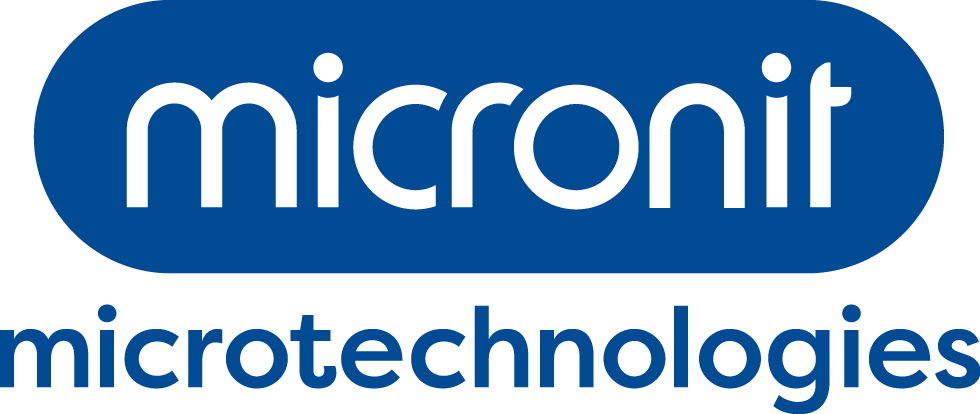This webinar will provide insight into the dynamics and benefits of rapidly evolving microfluidics and microelectromechanical systems (MEMS) technologies, which may have an enormous impact on the progress in science and healthcare.
Microfluidics is the science of manipulating small volumes of liquids, usually on microchips made with semiconductor manufacturing techniques and containing small channels, which enable accurate control of liquids and chemical reactions. Because of the use of small volumes, quicker temperature shifts and faster liquid displacement is made possible. Moreover, microfluidics enables the automation and integration of complex operations on-chip, with reduced sample and expensive reagent volumes. With such properties, microfluidics obviously fits applications in healthcare along with other MEMS technologies. Also, MEMS technologies are evolving into highly integrated technologies for a variety of application areas including biological and medical areas.
Breakthroughs in the fields of life science research, in vitro diagnostics and medical devices are only possible because of the progress that has been made by both top designers and top manufacturers in these technology fields. With the right capabilities and growing experience in the field, a plurality of possibilities are offered by microfluidics and MEMS companies that may lead to improvements in healthcare. For critical applications, where the challenge can be as critical as saving a patient’s life, selecting average quality is not an option.
For this, it will be key to successfully implement microfabrication technologies into industrial products. This does, however, require a multidisciplinary approach that usually starts from a conceptual design to prototyping, to a final design and process transfer for volume manufacturing. Moreover, a flexible approach allowing the choice of a variety of fabrication materials and hybrid material combinations as well as various options for fabrication technologies are key to the successful integration of multiple required functions into next generation products. This approach is of particular interest for developing relatively complex designs with multiple micro- and nanostructures and functionalities on board. This way, development costs and time-to-market can be reduced and success rates for cost-effective commercialisation are increased.
During this webinar, the approach for developing industrial solutions together with examples of recent technology developments will be presented and explained that may have a significant impact on applications in the field of life science research, in vitro diagnostics and medical devices. Examples provided will apply to the following market segments:
- Genomics
- Single-cell analysis
- Point-of-care diagnostics
- Organ-on-a-chip and cell culturing
- Drug delivery devices
- Wafer-scale packaging of medical MEMS components
Speakers

Monica Brivio, Business Manager BioMedical, Micronit Microtechnologies
Monica Brivio received her PhD degree in Chemical Engineering from the University of Twente (Enschede, The Netherlands) in 2005. As a former Assistant Professor at the Technical University of Denmark and a former leading researcher at both Uppsala University (Uppsala, Sweden) and the Science for Life Laboratory (Stockholm, Sweden), Dr. Brivio has gained more than fifteen years of experience in the field of lab-on-a-chip technologies and microfluidics for application in chemistry and life science with a focus on cross-disciplinary research in the areas of microfluidics, molecular diagnostics and immunochemistry. In 2012, she started working for Micronit Microfluidics as an R&D Project Manager first and then Strategic R&D Manager. Monica Brivio is currently Business Manager of the BioMedical unit at Micronit Microtechnologies.

Mark Olde Riekerink, Business Manager Life Science Research, Micronit Microtechnologies
Mark Olde Riekerink received his PhD degree in Polymer Chemistry and Biomaterials research at the University of Twente (Enschede, The Netherlands) in 2001. From 2001 to 2007 he worked at Philips Corporate R&D (Applied Technologies, Eindhoven) in several Semiconductor and healthcare related projects. In 2007, he started working for Micronit Microfluidics as an R&D Project Manager. Since then, he has been mainly involved in the development of lab-on-a-chip microfluidic devices for life science applications. Currently, as Business Manager Life Science Research, he is focusing on product developments in application areas like genomics and single cell analysis.

Jeroen Haneveld, Business Manager (bio)MEMS, Micronit Microtechnologies
Jeroen Haneveld received his PhD degree in micro- and nanotechnology from the University of Twente, Enschede, The Netherlands) in 2006. After a post-doc project in collaboration with Bronkhorst High-Tech, developing a micro Coriolis mass flow sensor, he joined Micronit Microtechnologies in 2010 as R&D Project Manager. Since then he has been involved in managing technologically complex, often MEMS- or packaging related projects. Currently, he is Business Manager of the (bio)MEMS unit in the company.
Who Should Attend?
Senior professionals from biomedical, diagnostic, and medical MEMS device manufacturers & foundries.
Relevant job functions include:
- Scientist
- Scientist 2
- Senior scientist
- Principal scientist
- Staff scientist
- R&D scientist
- R&D manager
- Project manager
- Senior manager
- Manager engineering
- Manager technology development
- Senior engineer
- Principal engineer
- Staff engineer
- Senior development engineer
What You Will Learn
- How microtechnologies are applied in growing application areas like genomics, in vitro diagnostics, cell culturing and medical MEMS devices
- Specific examples of product development in life science, biomedical and MEMS applications
- Recent advances in integrated flow control, sensor integration, hybrid materials, (bio)functionalization and microfluidic interfacing
Xtalks Partner
Micronit
At Micronit we provide innovative Lab-on-a-chip and MEMS solutions using micro- and nanotechnologies. Solutions that help our customers improve their products and research, contributing to the quality of life.
Research & prototyping services, creative product development and quality manufacturing are our core businesses.
Customers gain added value from our unique combination of:
- Microfluidics and MEMS expertise from design through prototyping to manufacturing
- Materials, from glass to polymers, silicon or hybrid combinations
- Customer application know-how
This enables our customers to develop winning products, both now and in the future. For example products for DNA analysis, medical devices, components for analytical instrumentation and space technology.
Micronit is located in the Netherlands and Germany and has customers in over 50 countries. For more information visit www.micronit.com or www.micronit.de.
You Must Login To Register for this Free Webinar
Already have an account? LOGIN HERE. If you don’t have an account you need to create a free account.
Create Account
